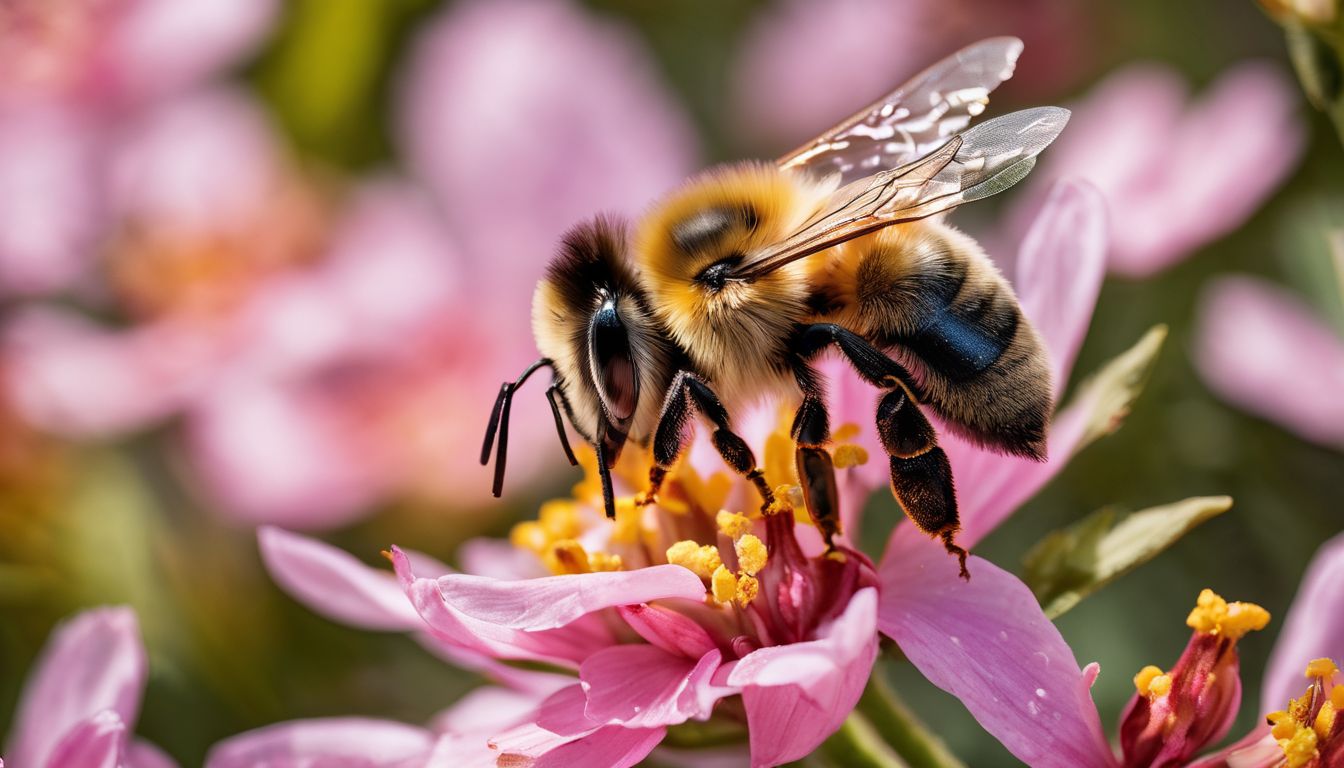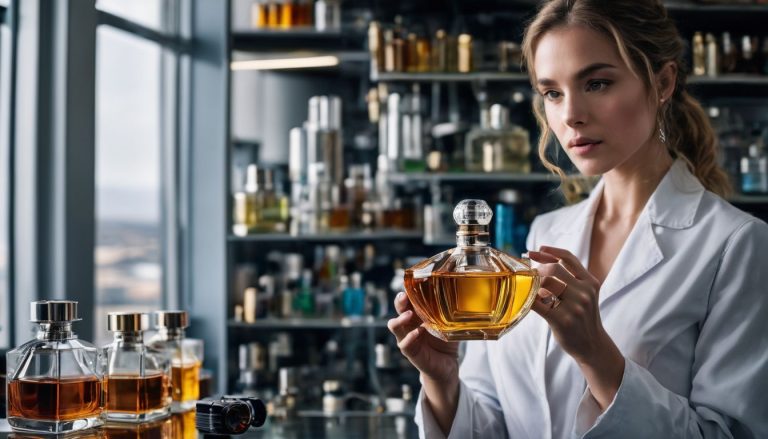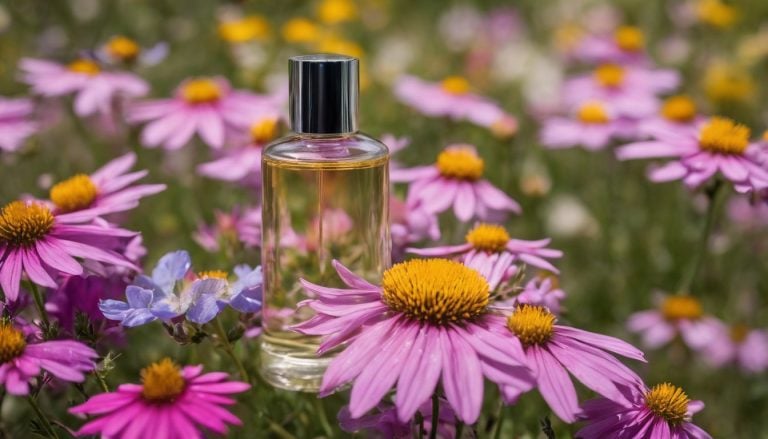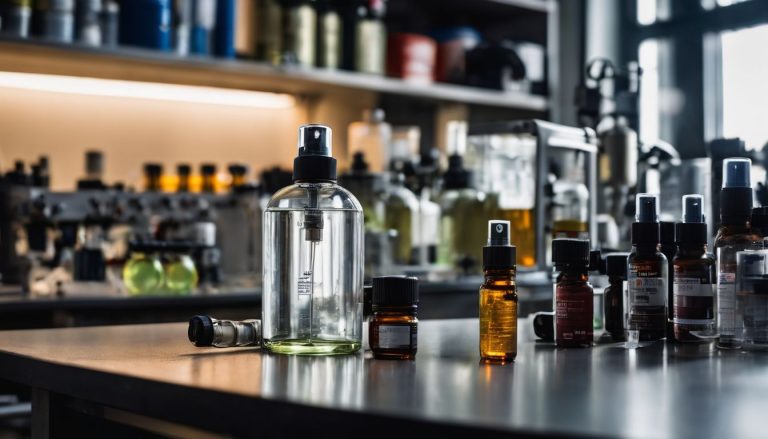The Science Behind: Do Pheromone Perfumes Really Work?
Are you wondering if that bottle of pheromone perfume can really make you irresistible? It’s said that these scents mimic natural chemical attractors. Our blog will dive into the science to see if these fragrant promises stand up to scrutiny.
Keep reading – it gets interesting!
Key Takeaways
- Pheromone perfumes contain synthetic chemicals designed to mimic natural human pheromones, but actual human pheromones are not included in these products.
- Scientific research has not found conclusive evidence to support the effectiveness of pheromone perfumes in humans, though they may influence behavior and attraction in other animals.
- Reviews on the impact of pheromone perfumes vary widely; some users report increased attention and confidence, while others see no change, suggesting possible placebo effects.
- The perfume industry lacks strict regulation for claims regarding the efficacy of products like pheromone perfumes, which can lead to misinformation about their potential benefits.
- Smell plays a crucial role in human attraction and sexuality. Certain scents have been proven to enhance sexual experiences and increase arousal.
Understanding Pheromones
Pheromones are chemical compounds that can influence perception and behavior. While they work in other animals, there is a lack of evidence about their effectiveness in humans.
Definition of pheromones
Pheromones are chemical compounds that animals, including humans, secrete into the environment. They trigger social responses among members of the same species. These invisible scents act as subconscious signals influencing behavior and can affect things like sexual attraction or territorial boundaries.
Insects use them to communicate about food sources or dangers, and mammals might rely on them to mark their territory.
Scientists have identified various types of pheromones with different functions—some attract mates, while others signal alarm or establish a social hierarchy. Pheromone perfumes aim to replicate these natural chemicals in hopes of enhancing human attractiveness or altering mood.
Moving forward, we’ll explore how these complex chemical signals function in other animals before discussing their controversial role in humans.
How they work in other animals
Animals use pheromones to communicate and interact with each other. Through these chemical signals, they can convey information about territory, mating readiness, and alarm. Pheromones help animals recognize their own species, find mates, and establish social structures.
For example, in bees, the queen bee releases pheromones that control the behavior and development of worker bees within the hive.
In dogs, pheromones play a crucial role in marking territories and signaling reproductive status. Canines have special glands that release pheromones through urination or defecation to mark their environment while providing information for other dogs.
Lack of evidence in humans
While there is substantial evidence supporting the role of pheromones in animal behavior, scientific research on the effectiveness of pheromone perfumes in humans is lacking. Pheromones have been extensively studied in animals to understand their impact on mating, aggression, and other social behaviors.
However, when it comes to humans, conclusive evidence demonstrating the efficacy of pheromone perfumes remains elusive. Although these products claim to enhance attractiveness and boost sexual desire through olfactory stimuli, the lack of concrete scientific backing casts doubt on their actual effects.
Ultimately, while pheromone perfumes may promise an alluring scent that can influence human attraction and desires like those observed in animals, the scientific community has yet to provide robust evidence for their effectiveness in real-world scenarios.
The Concept of Pheromone Perfumes
These perfumes claim to enhance attractiveness and sexual appeal through the use of potential ingredients that mimic human pheromones. However, there is a lack of regulation in terms of the effectiveness and safety of these products.
What they claim to do
Pheromone perfumes claim to enhance attractiveness and boost confidence through the use of synthetic chemicals that mimic natural human pheromones. These scents are marketed as potentially increasing one’s allure and desirability to others.
Some formulations also suggest benefits such as stress reduction, relaxation promotion, and sleep enhancement.
Scented pheromones purport to influence human behavior by creating a subliminal impact on those around the wearer, possibly leading to increased attention and attraction. However, it’s important to note that while these claims exist, there is a lack of concrete scientific evidence supporting their effectiveness in achieving these desired outcomes.
Potential ingredients
Pheromone perfumes may contain ingredients such as Epi-androsterone, Alpha-androstano, Androstadienone, and Androstenone. These chemicals are designed to mimic naturally secreted scents known as pheromones, which play a role in interpersonal relations.
While the formulation of these perfumes could potentially help reduce stress, promote relaxation, or enhance sleep, there is no concrete evidence supporting their effectiveness. In fact, pheromone perfumes do not contain real human pheromones but are instead made with synthetic compounds aimed at replicating them.
Despite their lack of scientific backing, these potential ingredients have garnered attention for their perceived benefits in interpersonal relationships.
In summary:
– Pheromone perfumes include synthetic chemicals like Epi-androsterone and Androstadienone.
Lack of regulation
While potential ingredients in pheromone perfumes are being studied, the lack of regulation in this industry raises concerns. The absence of standardized guidelines allows for a wide variety of claims to be made without concrete scientific backing.
With the popularity of pheromone perfumes on social media platforms and their potential impact on interpersonal relations, there is an urgent need for regulatory oversight to ensure consumer safety and transparency regarding product effectiveness.
Do Pheromone Perfumes Actually Work?
Opinions on the effectiveness of pheromone perfumes vary, with some reporting positive experiences while others remain skeptical – but understanding their role in attraction is key.
Read on to find out more about the impact of scent and sexuality.
Mixed opinions and reviews
Pheromone perfumes have sparked mixed opinions and reviews regarding their effectiveness. While some users claim to experience increased attractiveness and confidence, scientific evidence supporting these claims is lacking.
Chemicals in pheromone perfumes mimic naturally secreted scents known as pheromones, which could potentially impact interpersonal relations. However, the lack of regulation and concrete evidence for their effectiveness raises questions about their true impact on attraction.
Reviews on the effectiveness of pheromone perfumes are varied. Some individuals report feeling more confident and attracting positive attention when wearing them, while others remain skeptical due to the lack of scientific backing.
The role of attraction, not love
Pheromone perfumes are marketed as attractiveness enhancers, with the potential to influence human body odor and trigger a response in others. However, scientific evidence supporting their effectiveness is limited, and any observed effects may be more psychological than physiological.
The formulation of pheromone perfumes could potentially help reduce stress, promote relaxation, or enhance sleep; ultimately boosting confidence through the effect on attraction rather than love.
While there is no concrete proof that pheromone perfumes actually work in terms of triggering romantic love or long-term emotional connections, they have garnered attention for their potential benefits in interpersonal relations – particularly in enhancing initial attraction and social interactions.
The effect on the wearer vs. others
Pheromone perfumes may have different effects on the wearer versus others. While wearers might experience a boost in confidence and mood due to their belief in the product, those interacting with them may respond more to the wearer’s increased self-assuredness rather than any actual pheromones at play.
The impact of these perfumes is more likely psychological for wearers themselves, influencing their behavior and demeanor, rather than having a direct physiological effect on others they come into contact with.
Moving forward to “The Impact of Smell on Sexuality,” let’s explore how scent can influence attraction and sexual experiences.
The Impact of Smell on Sexuality
The relationship between smell and attraction is well-documented, with certain scents enhancing sexual experiences. Understanding the impact of smell on sexuality can provide insight into the potential effectiveness of pheromone perfumes.
The relationship between smell and attraction
Smell plays a significant role in attraction, as it can stimulate desire and affect emotions. Certain scents have been shown to increase arousal and even enhance sexual experiences.
Fragrances containing pheromones are believed to trigger subconscious signals of attraction and interest in potential partners. When individuals find someone’s natural scent appealing, it can lead to increased attraction and potential romantic interest.
Furthermore, the olfactory system is closely linked to the brain’s limbic system, which governs emotions and memory. This means that particular scents may evoke strong emotional responses or trigger memories associated with positive feelings.
Examples of smell enhancing sexual experiences
Pheromones can potentially enhance sexual experiences, as suggested by scientific research and anecdotal evidence.
- Certain scents can create arousal and increase attraction, causing a heightened level of sexual desire.
- The use of specific fragrances may lead to increased intimacy and sensual experiences during moments of physical closeness.
- Studies have shown that pleasant scents can lead to improved mood and heightened sensuality, contributing to more satisfying sexual encounters.
- Aromas such as vanilla, musk, and jasmine have been linked to triggering arousing sensations and enhancing the overall experience of intimacy.
- The use of pheromone – infused colognes or perfumes has been reported to stimulate feelings of attraction and desire among partners during intimate moments.
- Scented oils and perfumes have been known to evoke romantic feelings, leading to a deeper sense of connection and an enhanced sexual experience for both individuals involved.
- In some cases, the subtle use of scented pheromones has resulted in an increased level of passion and desire between partners, enriching their intimate interactions.
- Aromatic scents can create a relaxing environment conducive to heightened arousal and emotional connection, ultimately enhancing sexual experiences.
- The incorporation of pleasing fragrances into intimate settings has been found to contribute positively to the overall quality of romantic encounters, fostering a deeper bond between partners.
- Utilizing scents that appeal to personal preferences can lead to an intensified sensory experience, heightening the satisfaction derived from physical intimacy.
Conclusion: To Try or Not to Try Pheromone Perfumes?
In conclusion, the effectiveness of pheromone perfumes remains a subject of mixed opinions and reviews. Despite lacking concrete scientific evidence, these fragrances have gained attention for their potential benefits in interpersonal relations.
While some believe that they can enhance attraction and confidence, others argue that any observed effects may be more psychological than physiological. Ultimately, the decision to try pheromone perfumes depends on individual beliefs and experiences with fragrance effectiveness.
FAQs
1. What are pheromone perfumes?
Pheromone perfumes are fragrances that contain chemicals meant to attract others by supposedly influencing their hormones and psychology.
2. Does science support the effectiveness of pheromone colognes?
While some studies explore the link between pheromones and attraction, there is still debate in the scientific community about how effective these sprays are.
3. Can wearing pheromone perfume really change how people perceive you?
The idea behind these perfumes is that they may alter perceptions subtly; however, personal results can vary greatly due to many factors beyond just scent.
4. Are all fragrances with pheromones created equal when it comes to attracting others?
No, not all pheromone colognes have the same formula or potency, so their ability to affect attractiveness can differ among different brands and types.









